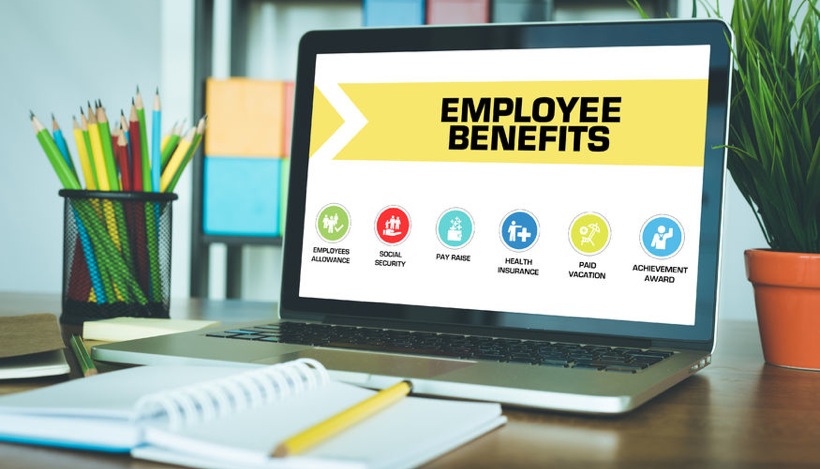If you’ve just started a business, or you’re just about to start a business, you’re eagerly anticipating the day when revenue starts piling up. But are you ready?
Whether you’re starting a side hustle, launching a full-fledged business, or building up an existing business, a key element of success is being smart and careful in handling your finances. And that means banking services.
Many online banks, brick-and-mortar banks, and credit unions offer banking services for businesses, whether it’s checking accounts, savings accounts, or lines of credit. To choose a bank properly, you will need to assess your banking needs, understand how to choose the right bank for a small business, and know how to open an account.
The key goal here is to address your financial needs and manage your finances effectively. Here are some advantages of opening a bank account for a business owner:
- As opposed to running things out of personal checking accounts or savings accounts, which some people with small side hustles can handle, business accounts provide a separate financial entity for your business and a cleaner way to manage cash flow.
- Setting up a separate savings account or checking account for your business helps manage day-to-day revenues and expenses.
- Business bank accounts help you stay organized and comply with tax laws and regulations.
- By keeping business funds separate from your personal funds, a business account helps to protect your personal assets from liability in the event of a lawsuit. It also keeps your personal finance setup cleaner. Remember that you may prefer one bank for your personal finances and another for your business.
- A business checking account makes your business look more professional to customers and vendors.
- Some business bank accounts offer lines of credit, which can be helpful in times of financial need.
- And lastly, aligning your business with a financial institution will be a key component down the line when your business grows.
In this article, we will outline key elements to consider before you begin searching for a bank to open a business account.
Thereafter, we will provide a roadmap to the top options available in the market, empowering you to make an informed decision that aligns with the goals of your business.
Find, Choose, and Open the Right Business Bank Account
Step 1: Understand Your Business Requirements
Even if you’re an experienced entrepreneur who has been running a business for some time, this is a critical first step.
You will want to choose a bank and an account type that aligns with your company’s needs—not the needs of Apple or Ford Motor Company or Darlene’s Pie Shop, but the needs of your business – and settle for nothing less.
No one bank will have the suite of products — debit cards, checking accounts, savings accounts, etc. — that everyone needs. So, assess your business profile and banking needs first.
- Your business’s size and industry: The size and industry of your business can affect the type of traditional bank, credit union, or online bank you need. The same goes for account types. A small business in the retail industry may need only a merchant account or a small business checking account, while a large business in the manufacturing industry might need help with everything from treasury management to retirement plans.
- Your future plans: If you plan to grow your business in the future, you’ll need to choose an account that can accommodate the growth. For example, you may not need budgeting tools or direct deposits now, but one day you will. And if you don’t take debit cards now but plan to accept debit cards in the future, you’ll be served by choosing an account that covers that now.
Some factors to consider:
- The size and nature of your business, whether you are a small family restaurant, for example, or a boutique retailer, or a sole entrepreneur consultant, your needs will vary.
- The number of employees, vendors, and/or outside services.
- The average number of transactions you make or expect in a month, and the dollar amount associated with those transactions.
- Your current and expected cash flow.
- Any special services you require, including the capacity to handle credit and debit card transactions, online banking, bill payment, budgeting tools, or wealth management
- Where you hope to be in a couple of years is a reasonable time frame, so choose an account that can grow in complexity as you grow. But don’t look for a bank that would cater to the business of your wildest dreams. You will need to pay bills and transfer funds now or in the near future, most likely, but you may not need a full-fledged business banker or even money market accounts just yet.
Step 2: Research Options: Online Banks, Credit Unions, Brick and Mortar
Compare various banks and credit unions to find those that meet the needs you outlined. Some banks will specialize by industry, so you may benefit from finding one that has clients similar to you. Some aspects to consider, again, keeping in mind your business needs:
- Industry-specific services or experience
- Reputation in the banking industry or with businesses in general
- Financial stability
- Availability of business debit card or credit card
- Proximity of a brick-and-mortar local branch and/or ATMs
- Variety of mobile banking services, such as bill payment, funds transfer, mobile apps, and other digital tools
- Customer support, either online, by phone, or in physical branches
Step 3: Compare Types of Savings Accounts and Checking Accounts
Various types of business bank accounts come with their own benefits, features like mobile banking, and monthly service fees. Common account types include:
Business Checking Account: Accommodates high numbers of monthly transactions, including cash withdrawals and wire transfers. Business checking accounts generally provide debit cards, check writing, and online banking. You may also get access to any mobile apps in the bank’s portfolio and paper statements for no fee. This kind of account allows easy access to funds.
Business Savings Account: This is where cash flow insight comes in. If you know you will have a stash of cash available and are looking to earn interest on your excess funds, check out business savings accounts. As with most saving accounts, a strong interest rate would make this option attractive.
But also look for a lower monthly maintenance fee, a good way to keep a lid on some of your overhead costs. With lower fees, however, often come a minimum balance requirement or limits on the number of monthly transactions, so keep track of your activity and statement cycle to avoid monthly fees.
Merchant Services Account: Not every business accepts credit cards. But if yours does, or you plan to grow into that service, this type of account can make processing those transactions easier.
Business Line of Credit: This is not a small business loan, though there are similarities. This provides a revolving line of credit for business accounts at financial institutions. It can help manage cash flow gaps or fund short-term needs as you try to reach your financial goals.
Step 4: Weigh Fees and Charges
Just as you manage expenses in your overall business, you need to monitor and control expenses within your banking environment and choose a bank accordingly.
In this case, those expenses can be any type of service fee, from a monthly service fee to monthly maintenance fees, transaction fees, or ATM fees. An overdraft fee or two can easily wipe out a month’s worth of interest earned, depending on your savings and interest rates. So, mind the minimum balance and other potential traps.
Most banks find ways to levy charges. Balancing lower fees versus certain benefits is just part of the banking experience. Pay attention to the fees of different banks or credit unions.
Step 5: Consider Additional Services
If you see your small business reaching your financial goals, growing quickly, and needing more support, look for a financial institution that goes beyond the basics. That could include payroll processing, cash management tools, a business credit card or debit card, online payment solutions, and integration with accounting software.
How important might these services be to your operation? While some businesses look to traditional banks for these touches, different institutions, including online banks, are beginning to target small businesses with new products and services.
Don’t assume an online bank cannot compete with a traditional bank for extra care.
Step 6: Compare Bonuses and Offers
Don’t forget that your business is valuable. Competition is keen for customers like you looking to open other accounts or switch banks or credit unions.
Check out what different banks or credit unions may offer as incentives to attract new customers. Some common enticements include cash bonuses, fee waivers, savings rates that exceed the market rate, and free checks or overdraft protection. See if the banks or credit unions that interest you offer rewards programs.
You are largely in the driver’s seat as a potential new customer, which won’t always be the case with most banks.
Step 7: Check Reputation and Reviews
Reach out to connections in your network to see who has business accounts and what route they took.
Bank or credit union? Online banks or brick-and-mortar banks? Checking accounts, money market accounts, and/or deposit accounts? Fellow business owners and fellow industry professionals are more likely to understand your company’s needs.
Supplement that anecdotal advice by perusing online bank reviews and ratings. Any homework here helps.
Step 8: Visit or Contact Banks to Assess Customer Service
Once you have narrowed down your options, compile a list of two or three finalists.
Visit the websites of those banks, or contact their representatives to gather more information. Ask for specifics about opening an account, such as the application process and what documentation you will need.
You will need to prepare yourself for the final step in this process, which is opening an account, but with the added benefit of getting a glimpse into your finalist’s customer service and responsiveness.
Step 9: Read the Terms and Conditions
This is where the bank or credit union should outline not just the items we talked about above: account types, minimums, fees, transaction limits, etc. The Terms and Conditions also will outline what and how the bank will protect you and your business’s assets, data, and privacy.
The T&C should tell you about how the bank operates online, including security measures, liability, and usage guidelines.
And, importantly, a bank will likely refer to the Federal Deposit Insurance Corporation (FDIC) in outlining how your deposits are insured. (Credit unions may refer to the National Credit Union Administration.)
This is where you will find the bank’s policies on termination, meaning under what conditions the bank can close the account or terminate the banking relationship, as well as the customer’s rights in such situations.
Additionally, the bank will generally include information on contacting bank personnel and how long will take to resolve an issue if one arises.
Step 10: Choose the Winner for Your Business Needs
Well, you’ve done the homework. If you feel you want one more voice in the process, consider consulting an accountant or financial advisor who can provide expert guidance.
But with all the research and evaluations in hand, you should feel confident in making an informed decision on the bank that best fits your business needs.
How to Open a Business Bank Account?
You’ve made the decision. Now act on it!
What Documentation Will You Need?
Online banks, credit unions, and traditional banks may vary in what documentation they need to open your account, but to be on the safe side, collect as many, if not all, of the items below before you start the application process.
- Your business name registration certificate
- Your business license
- Your Employer Identification Number (EIN)
- Your Social Security number (if you are a sole proprietor)
- Your business’s formation documents (articles of incorporation, partnership agreement, etc.)
Also, be prepared if asked for additional supporting documentation. That can happen.
Consider Applying Online
Many banks now offer the convenience of opening a bank account online. Online banks, traditional banks, and credit unions may differ in their specifics for this process, but typically you will need to have the following in hand:
- The business name, address, and phone number
- Your Social Security number or EIN
- The business registration information
- A copy of your driver’s license or any other government-issued ID
Apply at a Local Branch
If you prefer to open a bank account in person, go the brick-and-mortar route. A lot of people, especially those going with a traditional bank, feel more comfortable talking in person at one of the bank’s physical branches.
This is especially helpful if you need a final hand with the application process or have lingering questions that go beyond the process, like what interest rates currently apply to savings accounts.
To open a bank account in person, bring the same items listed above for an online application, plus a voided check and copy of your business’s tax returns, if applicable.
Throw an Account Opening Party
Finally, now that you have made the commitment, it’s time to fund that checking account or savings account or whichever of the bank accounts you have chosen to open.
You can fund the account by depositing cash, writing a check, or transferring funds from one of your other bank accounts.
And, sure, throw yourself an account opening party. Just watch those debit card purchases. After all, you’ve got a business to run!
FAQs
How to set up a business bank account online?
After you’ve done your homework and chosen the right financial institution, prepare for the online application process by collecting all the proper documentation. Online banks and traditional banks generally ask the same information, so you will need to have in hand the business name, address and phone number; your Social Security number or EIN; the business registration information; and a copy of your driver’s license or other government-issued ID.
What to look for when opening a business bank account?
First, assess your financial needs and the type of business banking that best fits the size and industry of your business. You will want to do your homework to decide the importance of services like mobile banking, whether you will need deposit accounts, what your tolerance will be for monthly fees, and similar questions. Most savings accounts are dependent on interest rates, of course, so if your business is looking for a short term savings account, for example, you will need to find out how interest rates are calculated. Knowing your business finances and business needs leads to knowing what to look for.
How long to set up a business bank account?
How long it will take your small business to open an account with a financial institution depends mostly on how prepared you are going into the application process. The more documentation you can collect ahead of time, the faster the process will go. There are benefits to applying online (convenience) and applying in person at a brick and mortar branch (personal touch). In either case, the process should go smoothly. The real time it takes will be collecting the proper documents, such as your business name registration certificate; your business license; your Employer Identification Number (EIN); your Social Security number (if you are a sole proprietor); your business’s formation documents (articles of incorporation, partnership agreement, etc.); and all the personal identification you might need.






